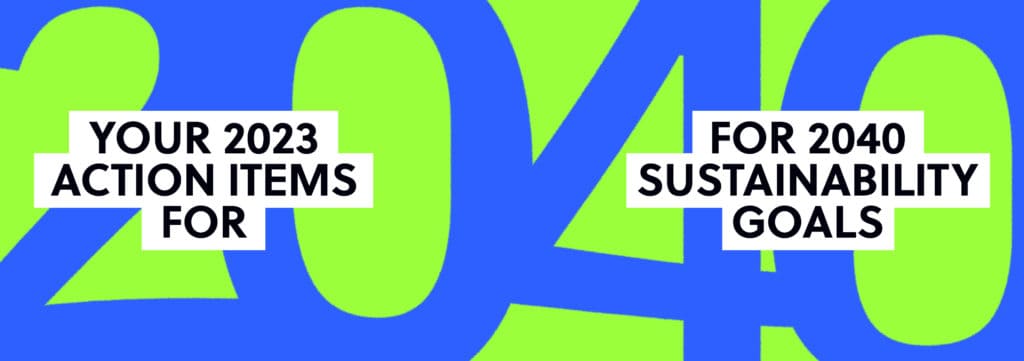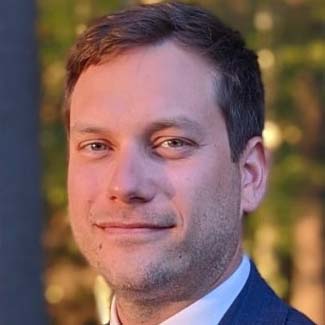Julius Pasay | Modern Planeteer


Your Action Items for 2040 Net-Zero
Over 702 companies on the Forbes 2000 have made net-zero pledges. Whether your organization has made a pledge or plans to make one soon, there’s a massive difference between pledging net-zero and achieving it. Do you have a clear roadmap for your sustainability journey? What are the right steps to consider to achieve 2040 net-zero carbon, water, and waste goals? It’s time to create a clear roadmap.
Julius is focused on developing and scaling nature-based solutions to combat the climate crisis.
Welcome to this edition of Modern Planeteers, a series that features leaders in the sustainability space taking charge and making a difference with their work. This series aims to shine a light on some of the heroes who are working to carve out a path to a more sustainable economy and the planet as a whole. Today’s Q&A is with Julius Pasay, Executive Director at The Climate Trust. With a Master of Forestry from the Yale School of Forestry and Environmental Studies and a background of real-world forest management experience, Julius leads his team in financing and developing nature-based solutions to the climate crisis, including forest management projects.
Meet Julius Pasay, a Modern Planeteer!

Julius drives The Climate Trust’s strategy and investments to effectively deliver market-based climate solutions to partners and demonstrate scalable approaches to combat the climate crisis. Prior to his work at The Climate Trust, Julius was the Forest Manager for the Yale Forests and a U.S. Fulbright scholar investigating climate-smart agroforestry techniques in France. Julius is a Certified Forester and holds a Master of Forestry from the Yale School of Forestry and Environmental Studies.
ABOUT THE MODERN PLANTEERS SERIES
The 90s cartoon Captain Planet is an unexpected part of CarbonBetter’s origin story. Our founder, Tri Vo, was inspired as a child by the “Planeteers,” who fought eco-villains that were trying to destroy the planet. He learned that everyone can make a difference and every step in the right direction matters. Today, the business that Tri built helps companies in all industries decarbonize, and we’re not alone in doing our part to fight climate change. In this series, we feature modern day Planeteers—heroes who are working to save our planet. You can be one too!
Explore the SeriesJulius, for those who may not be familiar, what does The Climate Trust do?
The Climate Trust utilizes the carbon market to finance and develop nature-based solutions to the climate crisis. We are particularly focused on developing projects that require complex financing and technical development, need to be piloted, or are scalable with some thoughtful business innovation. Specifically, we finance and develop grassland conservation projects, reforestation projects, and forest management projects.
Tell us a little about your role at The Climate Trust.
I lead our team in developing new carbon market and nature-based climate solutions strategies and partnerships. We are currently working on rolling out our new reforestation program, which was selected by the USDA Climate Smart Commodities Partnership program for a $15 million award.
At what point in the project development process is a project most likely to fail? Is there anything that can be done to overcome that?
Projects are most likely to fail before they even get off the ground. This is because projects themselves can be determined to be uneconomic, or project owners decide they do not want to commit to the project activity or required long-term monitoring. The Climate Trust has a highly skilled technical staff that is able to determine if a project is financially feasible or not long before capital deployment. An accurate feasibility study and a clearly-communicated carbon revenue forecast can go a long way in avoiding wasted time and resources.
What’s your favorite type of carbon offset project, and why?
My favorite project type is the reforestation of native forests. We are already causing significant climate change and damage to the ecosystems on which society, as well as wild plants and animals, depend. The time is already here to start working on climate adaptation and restoration, and these reforestation projects do double duty! They sequester carbon and add biodiverse habitats to increase climate resiliency.
“We cannot offset our way out of the climate crisis. Meaningful in-house reductions must be made first. Offsets should only be used for the impossible and very difficult abatement areas.”
JULIUS ON the need for meaningful in-house emissions reduction
What are your favorite news sources to stay up-to-date with the carbon market?
In my opinion, some of the best carbon market news sources include Ecosystem Marketplace, Carbon Pulse, and Clear Blue Markets.
Where do you think the most progress has been made in the sustainability movement in the past year? Where do you think we are falling short?
The biggest step taken in the last couple of years has been the enormous increase in emissions reduction and net zero pledges made by large companies. This is of course just a first step and leads me to where I think we're falling short. Many of these pledges lack a detailed plan of how emissions reductions will be made in-house. We cannot offset our way out of the climate crisis. Meaningful in-house reductions must be made first. Offsets should only be used for the impossible and very difficult abatement areas.
What is one thing someone reading this can do today to help their company or organization take the first step towards a more sustainable future? And, opposite of that, what is the one thing you wish companies would stop wasting their time and/or money on?
Evaluate your company's operations and supply chain emissions. Implement the most ambitious plan possible to eliminate those emissions. We're way behind the ball already.
Companies looking to purchase offsets should be wary of redundant offset ratings agencies and opaque tech solutions. Offsets purchased from independent and transparent carbon registries using scientifically and peer-reviewed methodologies are high quality. These registries include California Air Resources Board, American Carbon Registry, Climate Action Reserve, Verra, and Gold Standard. All of these registries regularly update their standards and methodologies to respond to the latest science and public comments.
What is one of the best or most worthwhile investments you’ve ever made? (Could be an investment of money, time, energy, etc.)
One of the best investments that our team has made was in the Zumwalt Prairie Carbon Cooperative. This was the first time that carbon finance was used to fund grassland conservation. This pilot project was supported through Climate Trust Capital Fund I back in 2017/2018 and has set the stage for The Climate Trust to offer carbon-based conservation easement financing to ranching communities throughout North America.
Have you read or listened to anything lately that you feel is important content for our readers to check out?
I've recently started reading the Washington Post's Climate Solutions page. They frequently post inspiring articles on new and promising climate solutions.
If you had unlimited resources, what’s one project you would love to focus on that you might otherwise not get done?
Plugging gas pipeline leaks and capping abandoned fossil fuel wells. These are some very low-hanging fruit to reduce needless emissions. Some recent studies have come out showing this problem is perhaps much bigger than originally thought. Given The Trust's focus on nature-based solutions, this is an area that's unfortunately outside of our wheelhouse but must get done.
If you were a Planeteer, what superpower would you want to have?
To grow a mature forest from seed in one day.

About The Climate Trust
The Climate Trust is a non-profit organization with a 25-year track record of carbon market leadership. The Trust is currently focused on innovating nature-based climate solutions via carbon project finance and development.